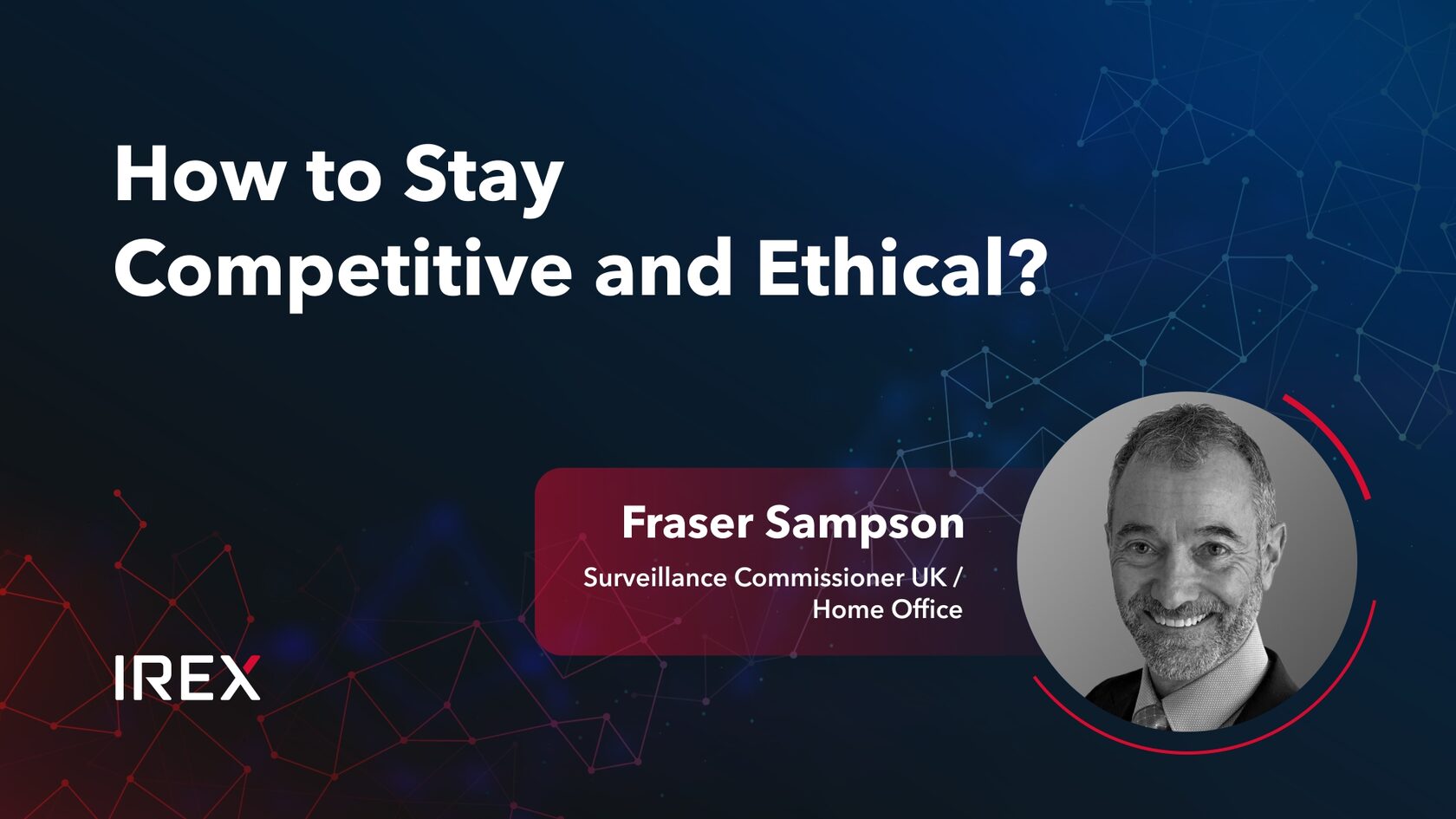In my area – biometric and surveillance technology - I think being ethically competitive in a democracy comes from triangulation, from balancing what is technically possible, what is legally permissible and what is societally acceptable. In short, the challenge is finding the ‘sweet spot’ between what can be done, what must or must not be done and what different communities will tolerate being done. Even in mature democracies that will vary considerably.
I emphasise democracies because I recognise that not all our international competitors subscribe to the same ethical values – whether that will come to be seen as a constraint or an advantage only time will tell.
Ethical competitiveness in surveillance will however engage principles, purpose and proportionality. We know, for example, how humanitarian uses of biometric surveillance can literally save lives, channel funds and provide refuge to some of the world’s most vulnerable people. But in the field of surveillance, one person’s protection is another person’s oppression. Once built, the same systems can be used for domination and exploitation - they can be used to marginalise, persecute and ultimately eliminate.
Some people may need to be marginalised and prosecuted and some activities eliminated. If new surveillance technologies can improve our ability to prevent terrorism, prosecute those who trade in human beings or eliminate pay-per-view child rape websites, what are the ethical arguments against it being so deployed?
Which brings us back to triangulation. A key question in the ethical use of surveillance is how do we know that our systems – what’s possible – are only being used for legitimate, authorised purposes – what’s permissible - and in a way that the effected community is prepared to support – what’s acceptable?
As others have pointed out, ethical practice is probably a differentiator at this time - but I sincerely hope it doesn’t remain that way. In a mature and credible market surely ethical practice is a legitimate expectation, an irreducible minimum like safety. My fellow panellist Ashley Moore from NIST has spoken of the Supplier’s Duty of Conformity (SDoC), a concept which I wholeheartedly endorse, while Calvin Yadav underscored the importance of those suppliers knowing what their clients are doing with the technology they’ve been sold. I would like to see this developed to include a Clients’ Duty of Conformity (CDoC), creating an ethical value cycle which is reviewed, verified and audited, revised in light of experience and reflected in the next product and service iteration.
Maybe in the emergence of AI, ethics should simply be seen as zero, the very thing that allows us to count and code. Or, as described by mathematician Robert Kaplan, the smallest of pivots on which swing all of the parts.
In the setting of biometric surveillance I think ethics should be a standard that comes as standard. Part of the STR in its DNA. Approached this way, ethical practice becomes intrinsic to the competition itself. If you’re not offering it, you can’t compete.
I’ll finish on a personal note. I’m a keen runner – if not a competitive one - and a devout user of the Nike Run Club app. On my run today they used a quote attributed to Jeff Johnson, Nike’s very first employee. The quote was “compete with others not against others”. I think there may be something there for how to stay competitive within ethical boundaries.
About Professor Fraser Sampson
Professor Sampson is the Commissioner for the Retention and Use of Biometric Material and Surveillance Camera Commissioner for the U.K.
Professor Sampson has over 40 years’ experience working in the criminal justice sector, having served as a police officer for 19 years before becoming a solicitor specialising in policing law, conduct and governance.
He is an Honorary Professor and member of the Advisory Board at the Centre for Excellence in Terrorism, Resilience, Intelligence and Organised Crime research at Sheffield Hallam University where he gained a PHD in digital accountability in law enforcement.
He has also worked as the national chair of the Association of Police and Crime Chief Executives and was appointed CEO and solicitor to the Police and Crime Commissioner for West Yorkshire in 2012, later being seconded as CEO to the Police, Fire & Crime Commissioner in North Yorkshire.


